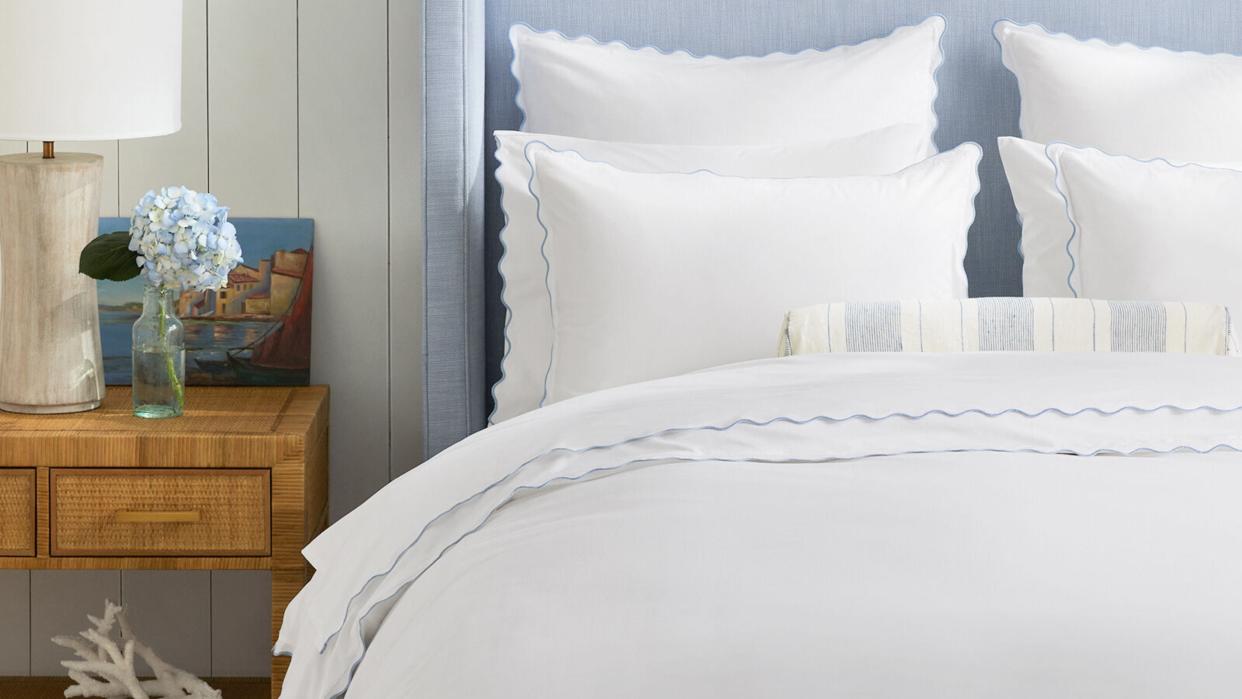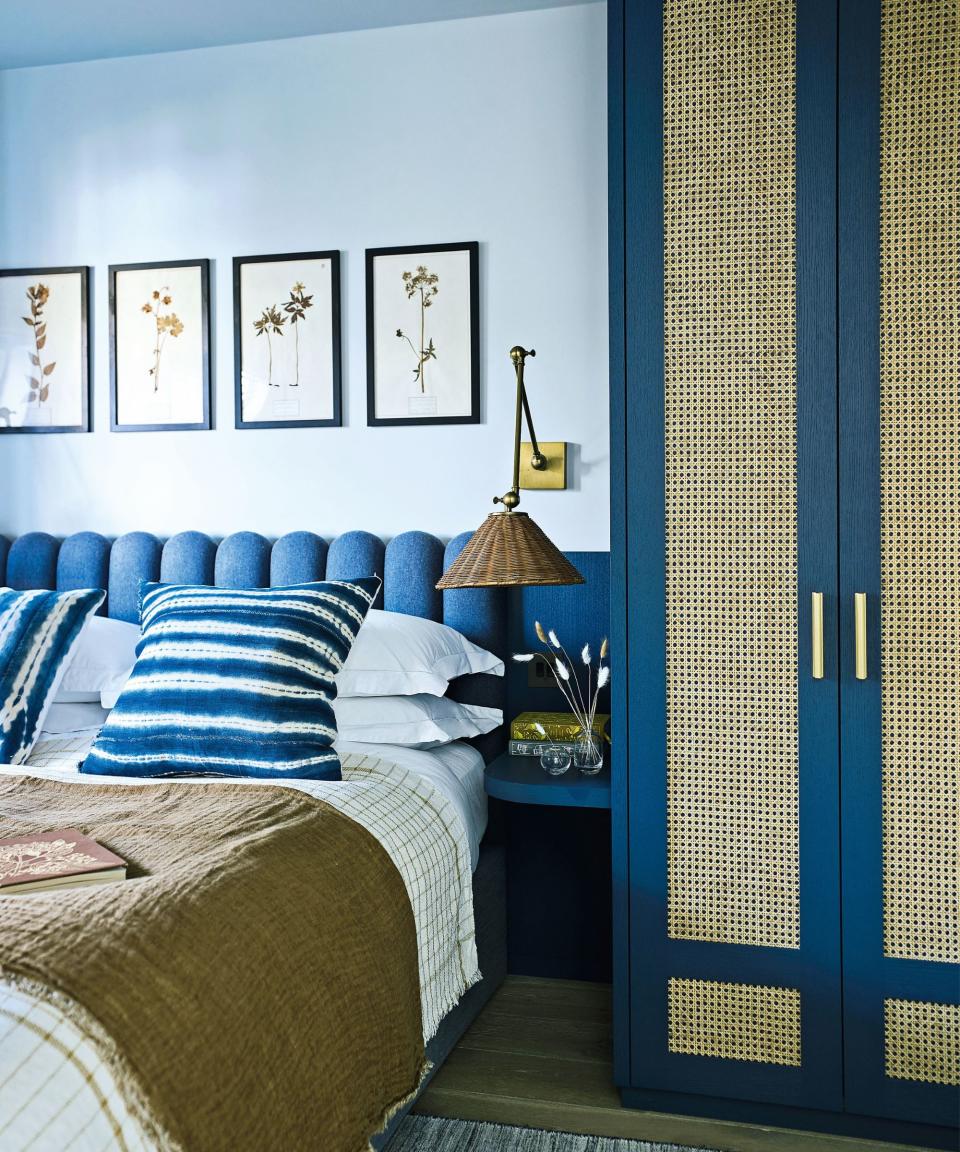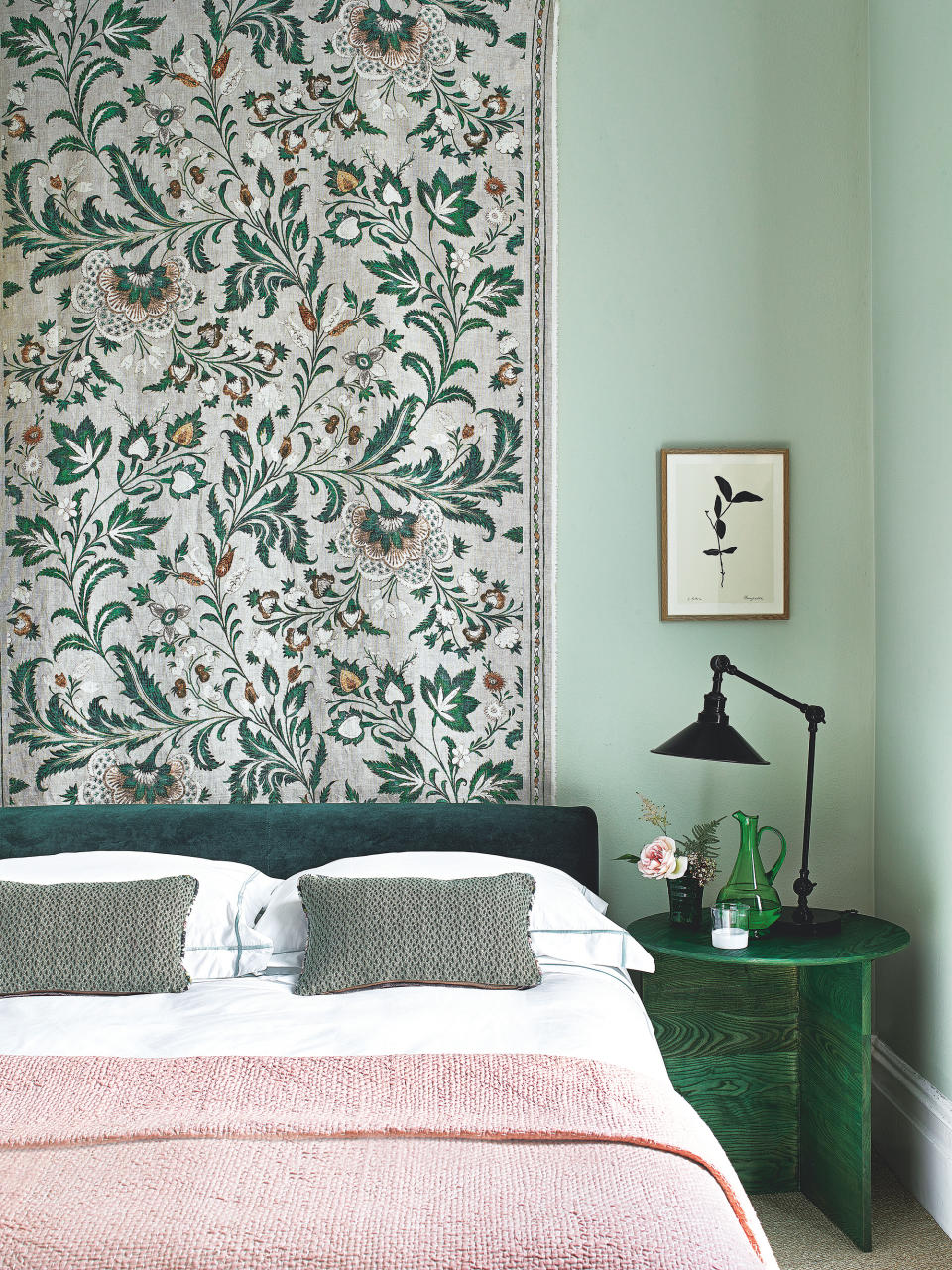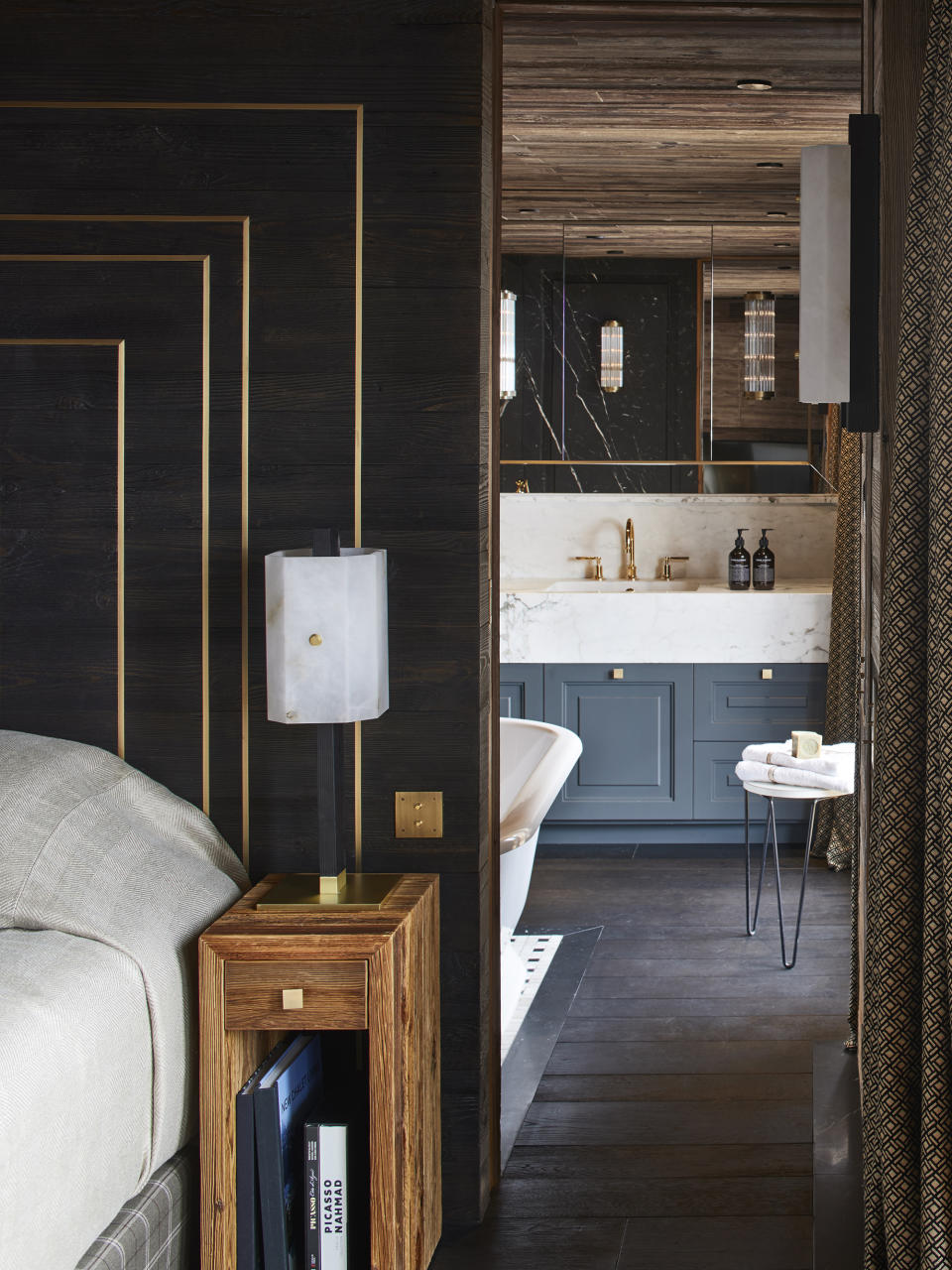H&G's interiors therapist shares 9 tips for embracing Feng Shui in a tiny bedroom

As a Homes & Gardens contributing expert, I love to share inspiring feng shui tips and knowledge with readers. It is well known that bedroom Feng Shui is one of the most important areas to consider in a home, but what happens if the bedroom is smaller than the luxurious spaces we see on Instagram?
Firstly though, some background. Feng Shui is a philosophy that has been used to invite good fortune into homes and businesses for over 5,000 years. It originated in China and the far east and has been used in the West since the late 1970s.
Many highly successful people and businesses routinely use Feng Shui, including Georgina Rodríguez, Oprah Winfrey, Steven Spielberg, and Amazon. Feng Shui works for every home regardless of size, provided you know how to use it.
Tiny bedroom Feng Shui
Below are some Feng Shui bedroom layout tips for small spaces, whether you are planning out bedroom layout ideas in a new home or hoping to Feng Shui your bedroom for good luck.

1. Get in flow
As the bedroom is the place where we spend so much of our time, it's vital to ensure the Feng Shui energy (also known as Chi or Qi) is fresh and flows easily into and around the room to support well-being during sleep and close connection with a partner. Dust chokes positive energy while cobwebs, even tiny ones, are evidence of stagnation, so keep the room aired and clean your bedroom from top to bottom.
2. Take command
Feng Shui bed placement is important to get right, but when you have a compact bedroom, there may be only one, or if you’re lucky, two places to locate the bed. Small bedrooms often mean being adaptable and making the best of what you have, but please never put a bedhead under a window as this allows chi to escape as you sleep which can be very tiring.
Instead, aim to position the bed so you can see the door in a direct or peripheral line of sight. This is what’s known as the ‘command’ position and provides a sense of reassurance because you know if someone enters the room. If by chance the door is located out of the eyeline, place a mirror to reflect the door so you can see when it opens.
3. Be mindful of mirror placement
It can be tempting to use mirrors to make a small room appear larger, but this may not support your Feng Shui for a couple of very good reasons. Firstly, a mirror opposite an uncovered window means positive energy can ricochet straight back out of the room. Secondly, it’s suggested mirrors that reflect the bed may shock the heart of a drowsy sleeper who catches sight of themselves in the night, and there’s also a risk of draining the life force chi energy, which means they are exhausted every morning.
So, where should mirrors be placed in a bedroom for Feng Shui? It is easiest to put mirrors at an angle to windows and doors and be sure they are well above pillow height, so they are both useful and supportive of well-being. A large wall mirror, at Anthropologie, can be moved around as you see fit.
4. Use furniture to promote strength and balance

You’ve probably realized Feng Shui is associated with a range of life-enhancing aspects when used in the bedroom and this includes reinforcing a sense of stability, emotional security, and balanced relationships.
A strong, comfortable headboard offers psychological protection for the head, neck and shoulders during sleep. Wood is regarded as a good choice for a headboard, but you’ll find many Feng Shui practitioners choose a tall, luxuriant, upholstered headboard, at Wayfair, for their own homes because we love our creature comforts and they are so delicious to rest against with a morning coffee!
In terms of balance in relationships, not just with others but also with ourselves, feng shui recommends that the bed has twin cupboards or nightstands on each side. The symmetry can be heightened with identical lamps. This is to ensure the energy surrounding the sleepers is in harmony.
It’s interesting visiting homes with a larger piece of furniture on one side of the bed and something smaller on the other, or where one side of the bed is against a wall – there is always an imbalance with one dominant partner and the other often feeling rather insignificant. In single-parent homes, where we find imbalanced beds, the adult’s status is frequently compromised and teens are taking advantage, so maintaining equilibrium is in everyone’s best interest.
5. Clutter is the enemy in any small space
You already know this, but hear me out. Feng Shui is all about creating flow and making space for energy to travel around a home with ease. For this reason, to have a really lasting impact, (ie for more than a couple of weeks or months) when you declutter your bedroom, it’s essential to go beyond the surface level and understand how each and every item in your space is either working for or against your best interests.
Interiors therapy starts with the basic “do I need it, do I use it, do I love it” perspective, and takes it further to being mindful of how each item makes you feel. This takes the process past dealing with what might be generally regarded as ‘clutter’ into reviewing possessions like décor items and art, which may be compromising happiness or your relationship without you even realizing it’s happening.
When decluttering is done at this deeply connected level, living contentedly without the stuff that brings you down becomes a way of life. The added benefit is that it often entices ‘clutterbug’ members of the family to follow your lead, so you get to enjoy a clutter-free home permanently.
7. Work with color

Feng Shui uses a combination of the elements of wood, fire, metal, water and earth to bring balance to a home, and while some parts of a property will always need a particular element, others may change on an annual basis. For this reason, practitioners encourage a neutral color scheme that can be altered with soft furnishings and the use of color in décor items, like rugs and art, to reflect the specific feng shui energy required.
If strong colors are used, they may work against the desired energy, which can leave sleepers feeling exhausted or out of synch in their life and relationships without knowing why. This can be particularly noticeable in bedrooms where a lot of fire colors (red, hot pink, orange) or water (blue, black, purple and deep colors) are used.
Each element has a particular range of colors associated with it; for example, metal is represented by gray, white and metallic tones. For the past 20 years, most homes have needed a significant amount of ‘metal’ energy and this has conveniently been reflected in the fashion for gray and white interior design schemes. In the coming years, we’re likely to see a gradual shift to more ‘wood’ energy with soft green tones and a desire for biophilic, nature-inspired art, which will also work well with neutral tones.
7. Terminate the tech
Sleep is crucial for the body to rebuild cells and re-energize for the day ahead. Any technology connected to the mains in a bedroom emits electromagnetic waves which are thought to interfere with the body’s ability to sleep deeply and regenerate overnight. Experts encourage removing all tech from a bedroom, including anything adjacent to the head, which is plugged into an electrical source, and therefore potentially impacting the soft tissue of the brain.
This would include a clock, radio, or mobile phone. The blue spectrum light from a TV and glowing standby lights compromise quality sleep too, so do yourself an enormous favor and remove all tech from the bedroom. If that’s simply impossible, invest in a battery alarm clock, unplug everything at night, and charge your phone in another part of the house.
8. Close ensuite doors

In feng shui, toilets and drains are said to release negative ‘humor’ or unpleasant energy back into the house, which is why we routinely advise keeping the toilet lid closed when it is not in use. A Feng Shui home is not a place to keep the seat up, despite the protestations of male members of the family! If you have an ensuite bathroom, as well as keeping it spotlessly clean, I’d recommend taking this a step further and keeping the entrance door shut too.
9. Respect your Deities!
Have you considered that, regardless of your personal beliefs, the bedroom might not be the best place to have an altar or shrine containing religious deities? Feng Shui is a metaphysical science that works with time, space, and energy. Although it has associations with Buddhism and Taoism, practitioners work with universal ‘chi’ energy rather than adhere to any specific religion, and most experts will discourage keeping images or statues of any divine being in the bedroom (or the bathroom!) as a mark of respect. Why is that?
Put simply, any god, goddess, or venerated spiritual leader is deserving of great respect and should be treated as an esteemed guest in your home. It’s unlikely you would invite such a guest into your bedroom or bathroom with you; they don’t want to see you undressed, being intimate, or in the bathroom!
The ideal location for a personal shrine or meditation space would be in the northeast of the home, which is the Feng Shui area dedicated to knowledge, spirituality and learning. If you have no other option than to have your meditation space in the bedroom, consider adding a raised cabinet that can be closed, or using a shelf for your deities that can be covered when not in use for spiritual practice.
In short, regardless of the size of your bedroom, it is the only space in your home dedicated to rest, romance and relaxation. Give yourself the best environment to achieve this, and whether you sleep alone or with a significant other, recognize the importance of creating a dedicated space for your physical and emotional well-being every night.
Suzanne Roynon is an Interiors Therapist, Feng Shui practitioner and author of the bestselling ‘Welcome Home, how stuff makes or breaks your relationship’.
